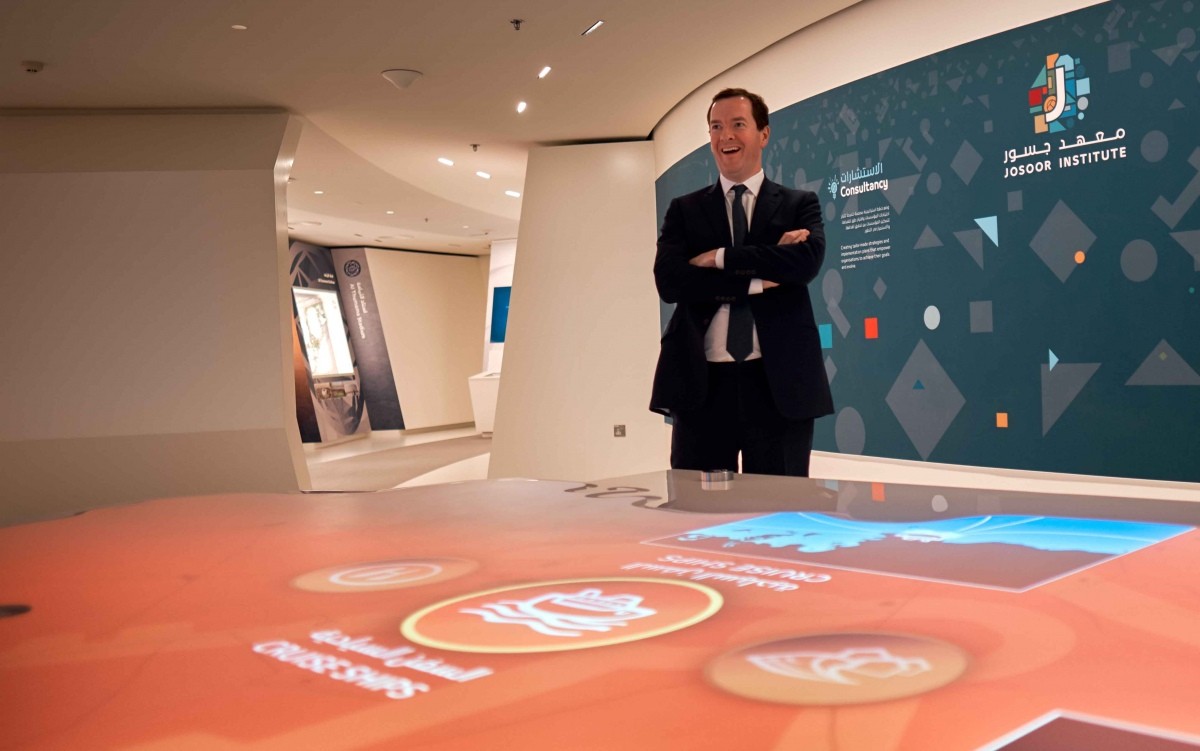.jpg)
_1-itok=GFMKQ6A9.jpg)
One of the United Kingdom's most senior politicians – who oversaw the preparations, delivery and legacy planning of the London 2012 Summer Olympic Games – has praised Qatar's long-term approach to planning not only for the tournament, but for long after the 2022 FIFA World Cup™ finishes.
George Osborne, Chancellor of the Exchequer from 2010 to 2016, held overall responsibility for the UK's finances – including the £9bn (45bn QAR) budget for the 2012 Games. He was also responsible for signing off a post-Games redevelopment plan that ensured the surrounding communities benefitted directly, and a positive legacy was left.
And during a recent visit to the Supreme Committee for Delivery & Legacy's (SC) headquarters in Doha, praised the approach in place in Qatar.
"All the planning that's going into the preparations for the World Cup is very impressive," he said. "Everyone is aware of the challenges Qatar has had, but I think coming here you also see some of the opportunities.
"The new stadiums are very impressive – so it's exciting. Like any World Cup there's always a lot of queries in the run-up to the tournament, but you look here and you hope Qatar can answer those queries."
During his tour of the Legacy Pavilion within Al Bidda Tower, Osborne was shown detailed plans for each of the legacy programmes in place around Qatar and the region – including Generation Amazing, Challenge 22, Community Engagement and Workers' Welfare.
Following the tour, and drawing on his first-hand experience in 2012, he commented on the role that major sporting events can have on a community, city and country.
"I was in the government as the Chancellor when we hosted the Olympic Games in 2012," he continued. "They were fantastic Games – one of the most exciting ever. I think the thing we really got right – and it wasn't just me at all, there was a whole team that had been in place for years – was the legacy aspect.
"If you go to the Olympic Park today, in 2018, it's a thriving, exciting community in London. Of all the things we got right, the legacy is what really stands out."
He continued: "From what I can see, Qatar is already thinking about life after the World Cup and making sure the stadiums don't become white elephants. For example, being able to downsize them and build other facilities that the local communities want is crucial. You have to think about what comes after long before the tournament starts."
SC Communications Director Fatma Al Nuaimi discusses legacy plans with George Osborne
A key part of the tour focused on the work carried out with Qatar's local communities in the preparation, planning and development of each of the stadium's surrounding areas. During the consultation phase, the SC's Community Engagement department actively reached out to communities to find out what they wanted from their new stadium, be it schools, health facilities or leisure opportunities.
Something, Osborne says, was another crucial part of the perceived success of the Olympics he was at the centre of.
He said: "Working with the local communities, as we did in east London, is crucial. The fans come from all over the world, and then they go. The world's media arrive, but then they go. The players come and go – but the people who are left are the people in the communities. They [the local residents] have got to feel proud of what was done in their community, they've got to feel a real part of it.
"It was interesting meeting lots of people that went to the London Olympics and one of the things they most remembered was not Mo Farah winning the gold medal, it was actually meeting the volunteers who were from these local communities and were incredibly proud to show off their communities to the world.
"So if you can replicate that in Qatar, then fantastic – and I wish you every luck with your journey."
George Osborne said the London 2012 Olympic Games (pictured) left long-lasting legacy in the UK
The SC's Communications Director, Fatma Al Nuaimi, who hosted the tour, also welcomed Osborne to Qatar and said it was a valuable knowledge-sharing experience to hear from someone with his experiences.
"From the very first days of the bid, we have always said this World Cup is not about one month in 2022 – it is about creating a lasting legacy for the country, the region and the world. We are already doing this through programmes such as Challenge 22 and Generation Amazing, so it was fascinating to meet with and hear from Mr Osborne, who has already experienced what a mega sporting event can do for the economic, social and sporting legacy of a community and a country.
"The London Olympics – and the legacy it left behind – was a great success story for everyone involved. To have the opportunity to listen to and learn from someone of his standing is always a pleasure, and we look forward to welcoming him back to Qatar soon."

